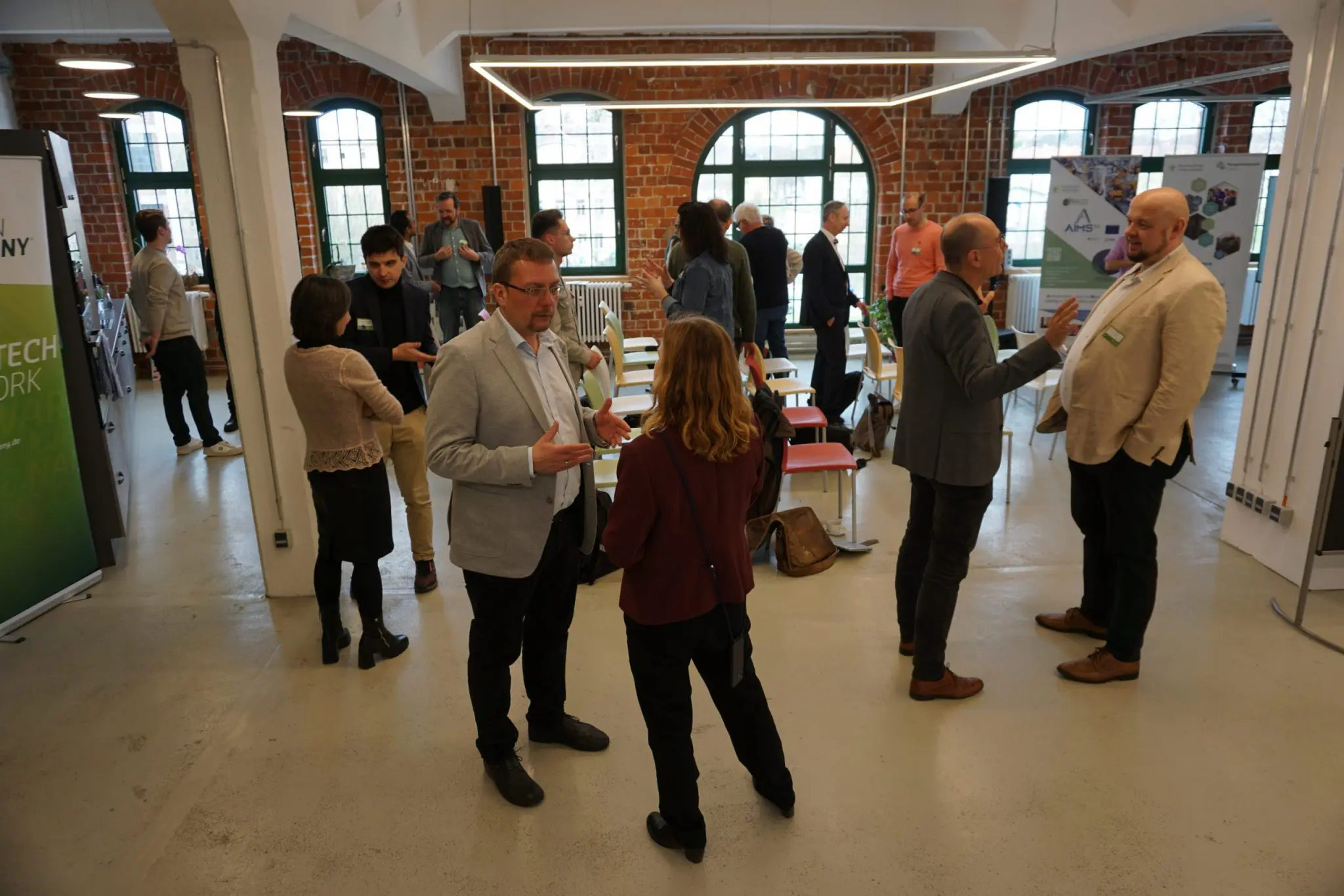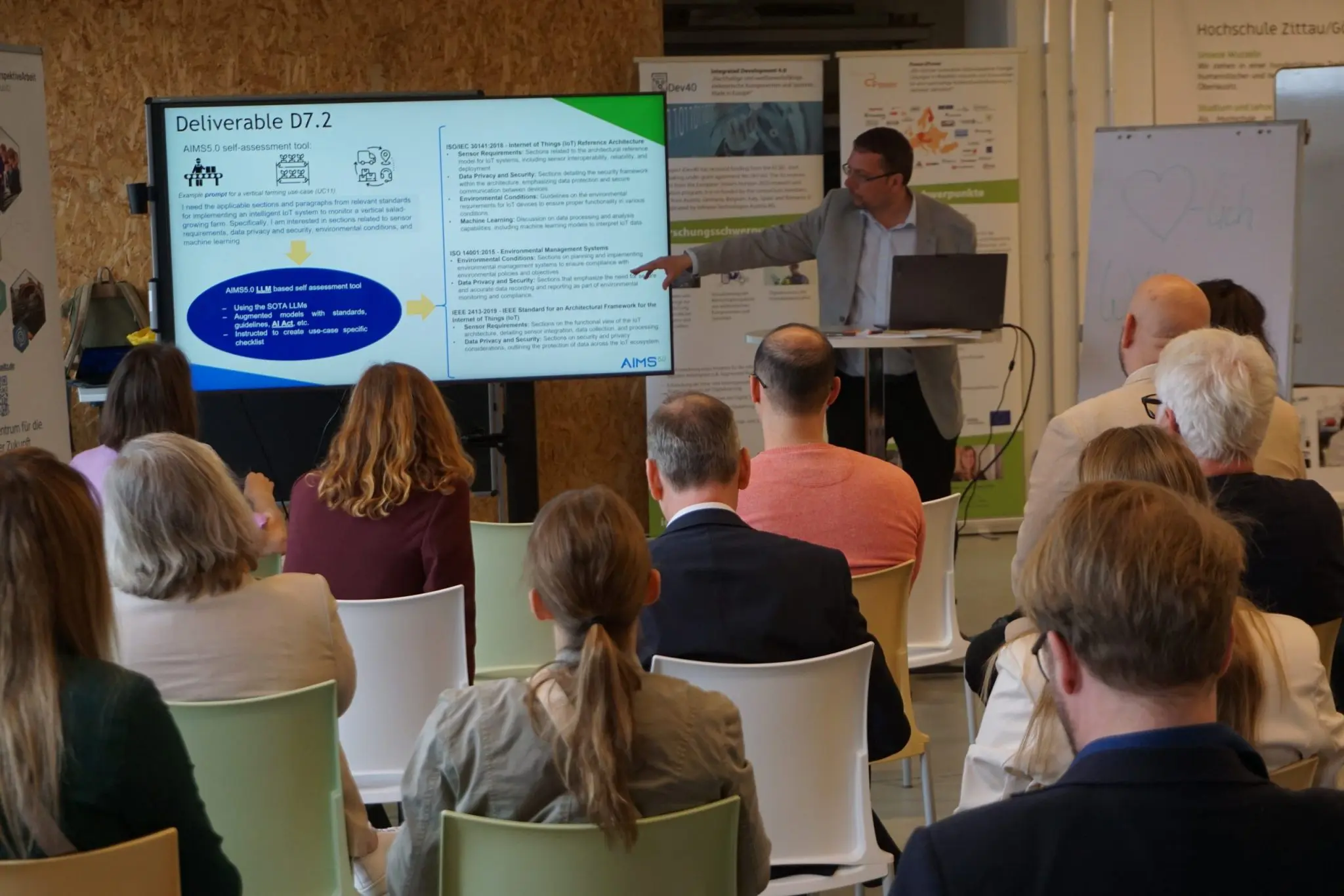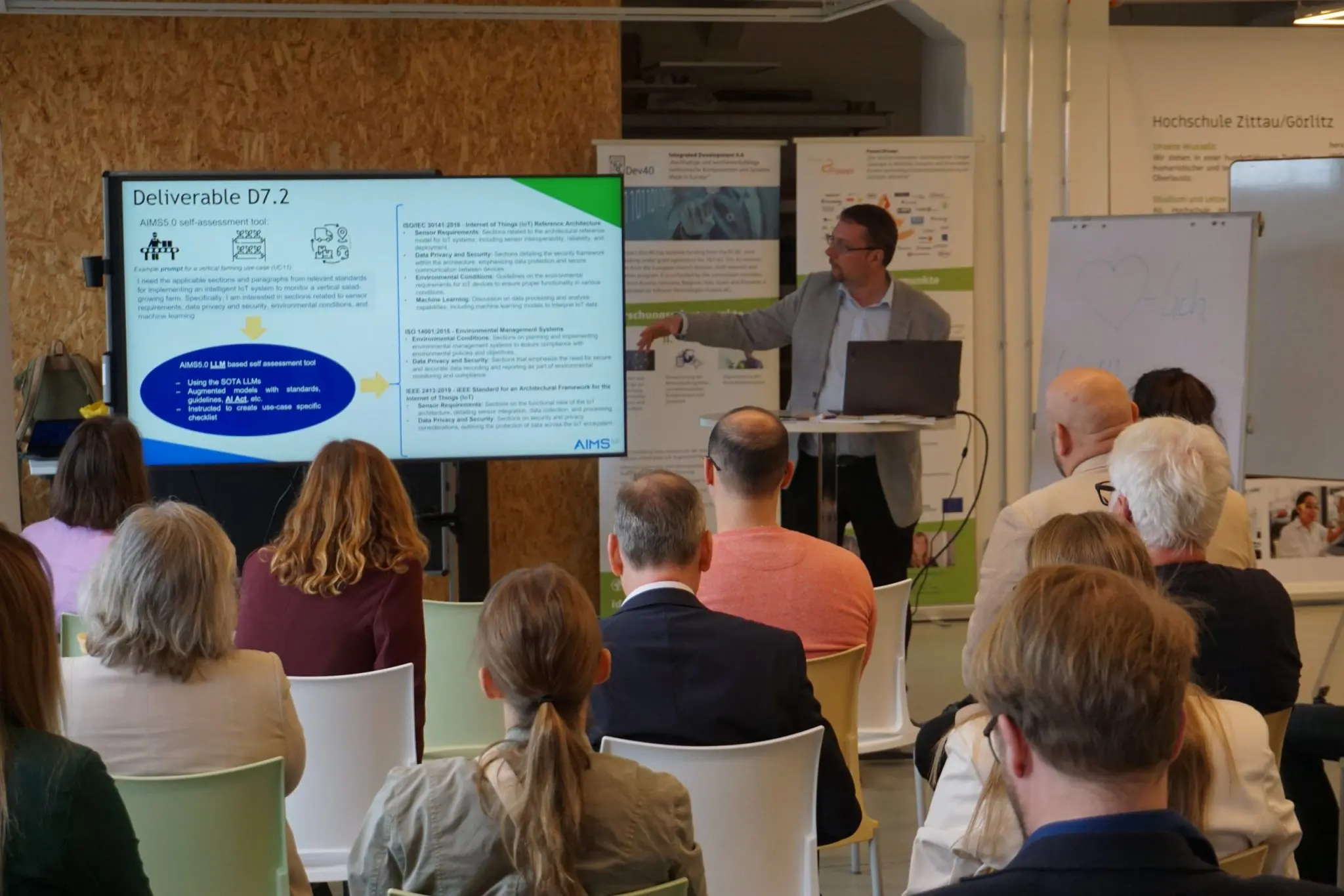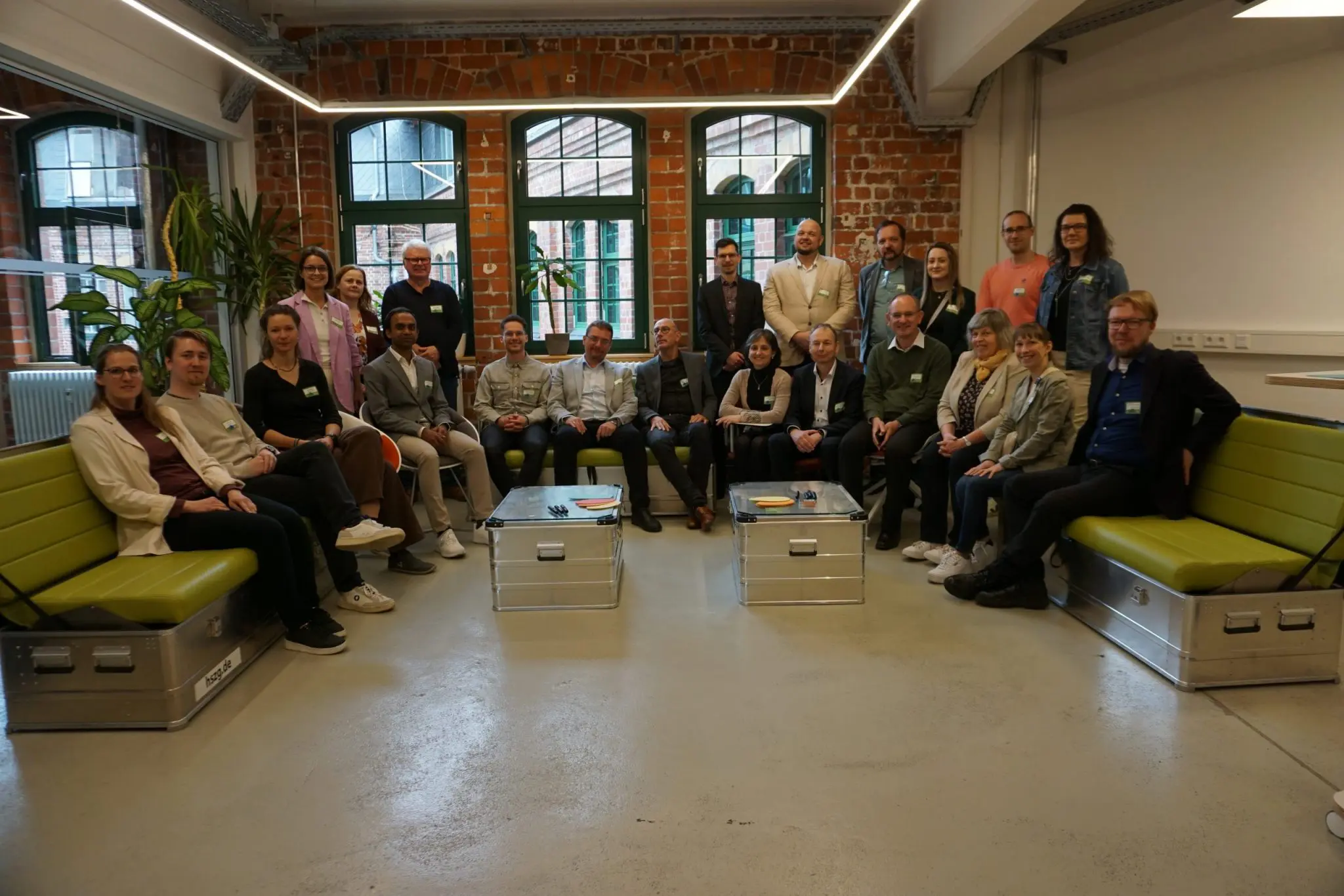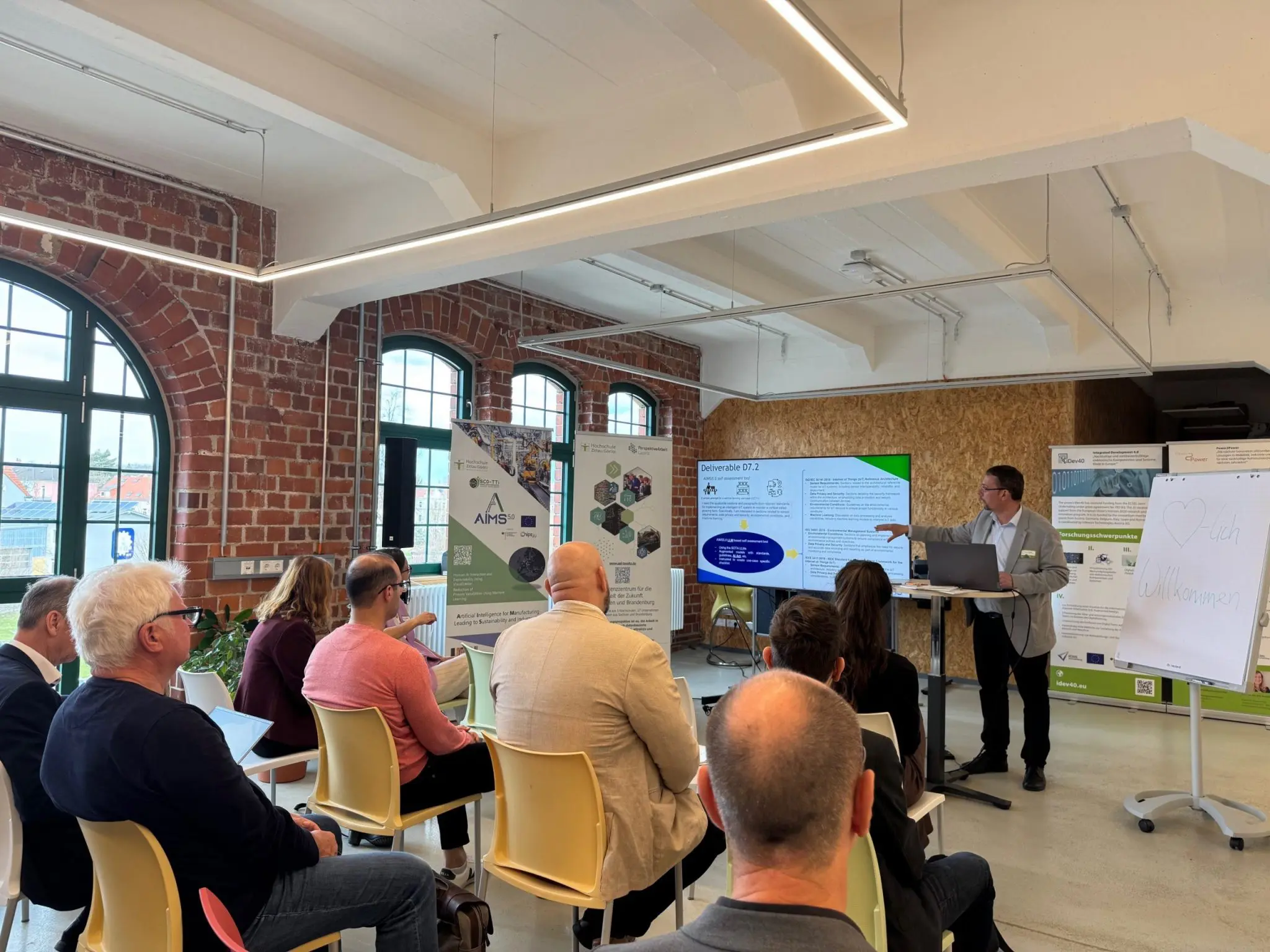Representatives from the AIMS5.0 and PAL projects came together at Zittau/Görlitz University of Applied Sciences for a joint workshop centered on the practical implementation of AI in industrial environments. Under the theme “AI in Action: Innovation, Acceptance, and Ethics”, the event at the beginning of April addressed key topics such as data preparation, employee acceptance, and ethical considerations when integrating AI into manufacturing processes.
Both AIMS5.0 and PAL pursue similar objectives: advancing human-centric, trustworthy, and sustainable AI technologies for industrial use. To foster collaboration and learn from each other’s experiences, this exchange was initiated – focusing on active dialogue about ongoing research, application areas for data-driven assistance systems, and strategies for cross-border cooperation.
Following brief introductions to the core focuses of each project, the workshop kicked off with an engaging “speed dating” session, where participants from both initiatives connected through a series of short one-on-one conversations. This informal networking activity quickly revealed thematic overlaps and sparked inspiration for deeper collaboration.
Participants then moved into themed discussion tables to tackle two central questions:
- How can effective data preparation be achieved in partnership with companies?
- How can employee acceptance be fostered during the implementation of AI technologies?
These mixed-group conversations led to a lively exchange of insights from both research and industry perspectives. The diversity of expertise present—ranging from academia and technology providers to industrial practitioners—enabled a rich, multidimensional dialogue.
Markus Tauber, Chief Scientific Officer at RSA FG and part of the AIMS5.0-consortium Work Package 7 on trustworthy and ethically sound AI systems, presented on the engineering of secure AI-driven solutions. The conversations around his contribution focused on building systems that align with European values of security, transparency, and ethics.
The event concluded with mutual agreement on the value of direct exchange and the potential for future collaboration. There was strong interest among participants in continuing the dialogue through additional joint workshops.
To round off the day, many attendees also participated in the International Business Conference on the Semiconductor Industry, which took place immediately afterward in Zittau. The conference focused on developments in Taiwan, Germany, and the Czech Republic—perfectly complementing the themes of digital sovereignty and strengthening Europe’s semiconductor capabilities.
Takeaway:
The exchange workshop successfully brought together the networks of AIMS5.0 and PAL, demonstrating that AI and data-driven assistance systems thrive best in collaborative environments. The teams left with fresh ideas, new connections, and a shared understanding that shaping the future of work requires open dialogue—across disciplines, borders, and technologies.


